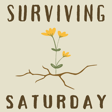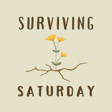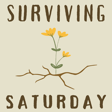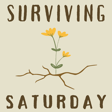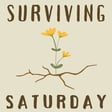
Big News! Introducing Chris the intern (Yes, THAT Chris)
There’s a new intern at Nurture Counseling — and y’all, while Chris Osborn might be married to Wendy, that doesn’t mean he’s off the hook for the usual intern duties. In this episode, we officially welcome Chris to the team… and gently remind him that coffee runs and red carpet rollouts may still be part of the gig.
But in all seriousness, this episode opens up a much deeper story — one that’s been unfolding for decades. Chris reflects on his family of origin, growing up in the wake of a very public divorce, and learning early on that being the “good guy” could help him survive and belong. He shares how shame quietly shaped him, how his identity became entangled with performance, and how that eventually unraveled through the pressures of marriage, parenting, caregiving, and calling.
Now, as he steps into the work of therapy, Chris shares the kind of clients he hopes to sit with — especially those who feel like their answers are no longer working, who are worn out from trying to hold it all together, and who need a safe place to be fully seen. With humor, humility, and a deeply thoughtful presence, Chris is stepping into this new chapter with both feet — and a lot of heart.
This conversation is honest, funny, and full of grace. It’s about the stories we carry, the systems that shaped us, and the quiet courage to begin again — a courage that doesn’t come from within, but from the love of a God who meets us right where we are.
Connect with Us!
Follow @nurturecounselingnc on Instagram
Visit nurturecounseling.net
